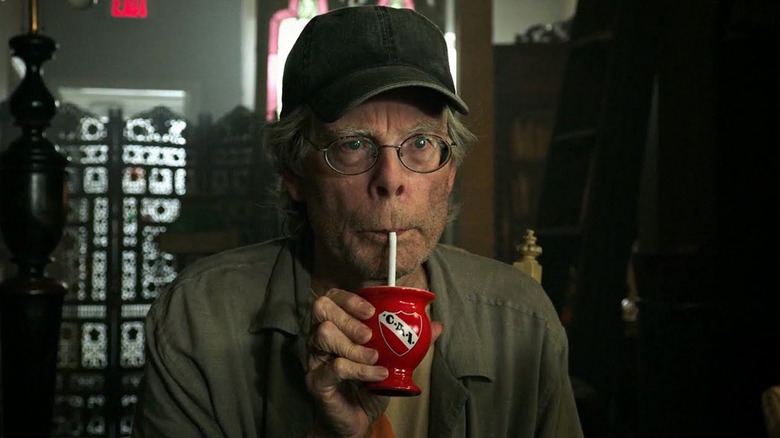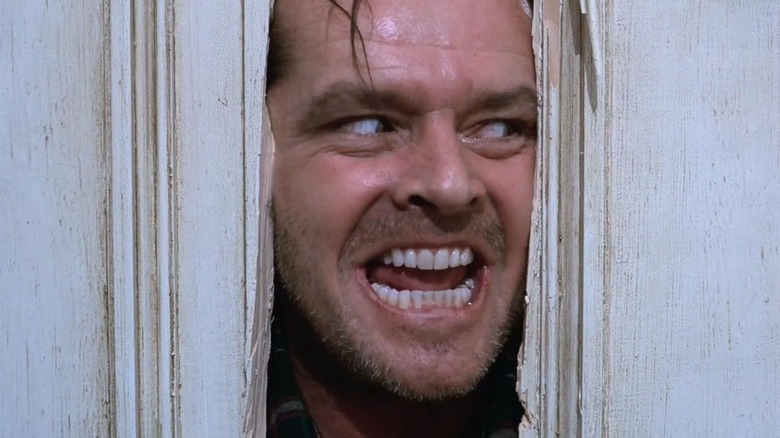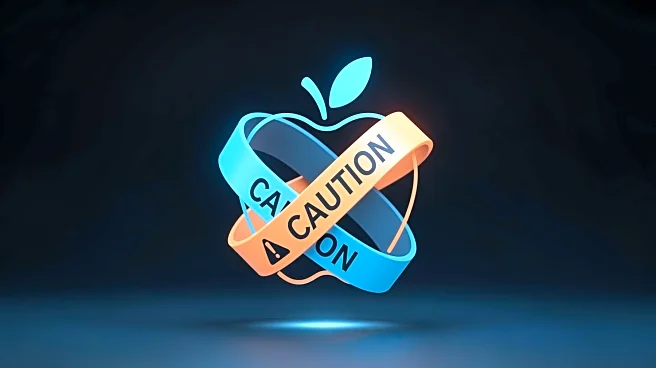
Stephen King has had over 50 of his novels, short stories, or novellas adapted on screen, making him one of the most popular authors. The author's smooth and straightforward prose attracts filmmakers because
it's filled with relatable characters, and rooted in a strong sense of place (often rural Maine). Once he settles you in the story's rhythms, King will smack you in the face with some of the most stomach-churning gore or existential dread. King's books often explore the insidious evil beneath small-town America, the emotional fragility of childhood, and unfold as Lovecraftian epics with a vast mythology.
But not every Stephen King film adaptation is successful or worth watching. For every "The Shawshank Redemption," there's "Cell"; for every "Misery," there's "Trucks." The failure of such movies to capture the essence of the source material would bother a lot of authors. In an interview with Vulture, Stephen King references "Rosemary's Baby" author Ira Levin, who was "very anxious that [director Roman Polanski] follow the book very closely, right down to the kind of shirts that the John Cassavetes character wore." King does not take this same approach, which may be why we've ended up with such an uneven mix in the quality of adaptations.
Most authors treat their books as sacred creations — like their own babies — because they've spent years writing them, and pouring all their creativity and heart into them. But Stephen King has never been overly precious about his work, letting filmmakers run wild with their own interpretations. He told Rolling Stone in 2014, "The movies have never been a big deal to me. The movies are the movies. They just make them. If they're good, that's terrific. If they're not, they're not." This makes us wonder: what allows King to be so hands-off with his stories?
Read more: 15 Best Movie Plot Twists Of All Time, Ranked
Stephen King Keeps His Book And The Movie Separate — Except For One

King explains in the Vulture interview that his easygoing attitude towards film adaptations of his work comes from "Mildred Pierce" writer James M. Cain, who replied to a reporter's statement that his novels were ruined by the movies. Cain said, while pointing to his bookshelf, "No, they didn't, they're all right there." In other words, King regards the film and book as two separate entities. King's feeling about filmmakers visualizing his work has always been, "If it's a success, it will help me do what I want to do, which is to write books." No matter if it ends up being a classic like "Carrie" or a trainwreck like "Dreamcatcher," King views his books as "untouchable." He can adopt this laissez-faire point of view because, "a) I'm doing okay financially so I can afford to take a risk, and b) I've been prolific enough so that I don't feel upset about it."
There is one exception to his chill perspective. The novelist has been famously outspoken about hating Stanley Kubrick's "The Shining." Ironically, it's what both /Film and many critics consider the best Stephen King adaptation of all time. King disliked that Jack Nicholson came off as too obviously Machiavellian from the start, and that Wendy was portrayed as a quivering jellyfish of a woman. He also resented Kubrick's cold, detached, and cynical treatment of "The Shining" because it was a very personal story to him as a recovering alcoholic. It plays on his fears that the rage and violent urges of his drinking could turn him into a monster that hurts his family. Stephen King ended up producing a miniseries to tell a version that was closer to his original intentions.
If you're looking for the easiest way to keep up with all the major movie and TV news, why not sign up to our free newsletter?
Read the original article on SlashFilm.











